When you go to the grocery store it’s always the same. All year round you’re guaranteed to be able to buy any produce item that your heart desires. This is because it’s shipped from across the world if it has to, just to be there for everyone to buy.
Because of this many of us have no idea what is in season, or how to adapt to this type of eating. Today I want to teach you about seasonal eating and how to eat more from your garden.
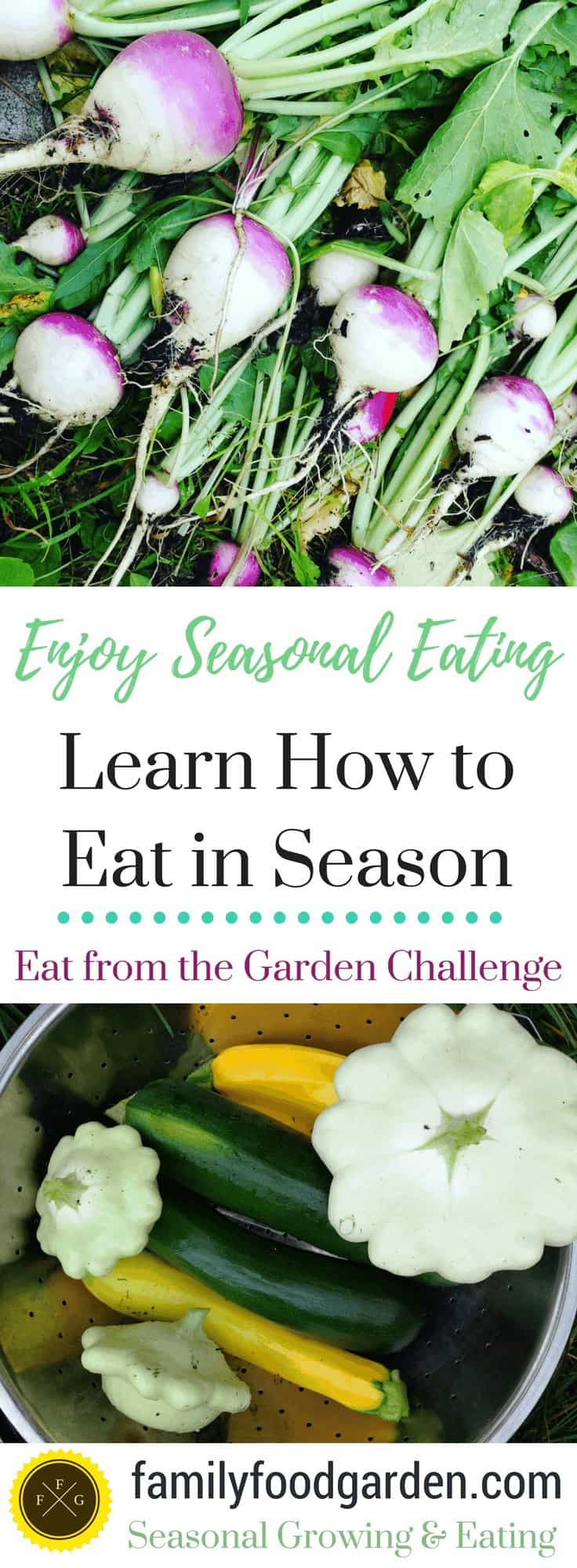
If you want a fresh summer salad you’ll have to wait until spring or fall because that’s when lettuce grows, in cooler weather not the heat of summer (which tends to be when you want them the most).
If you want a zucchini you forgo it most of the year and then get swamped with them for 2-3 months in summer.
Fall & winter is met with comforting root veggies and squash, whereas spring offers lighter more cleansing greens and herbs.
Eating in season is something I highly recommend. It requires a shift in your tastes and awareness of what’s available.
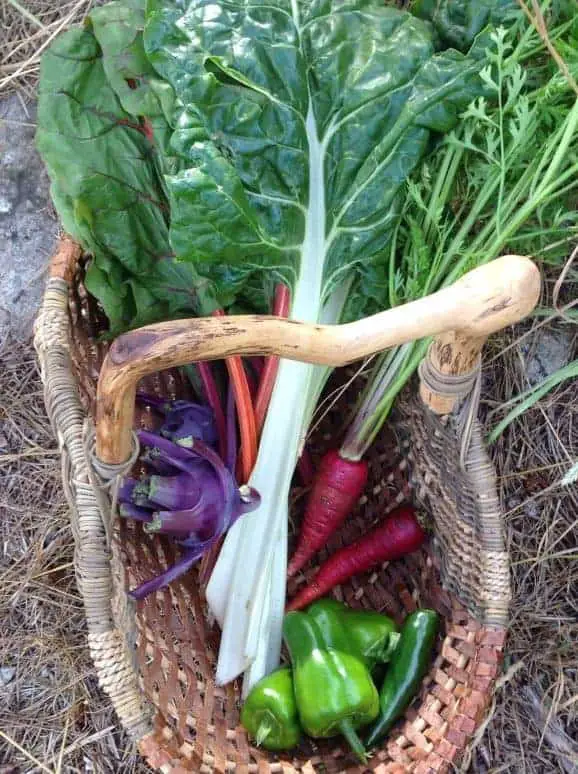
Eating Seasonal Benefits
Here are some of the many benefits to eating in season:
- The cost of produce in North America has gone up. Way up. This is partly due to the California drought, which is far more serious than many realize. Your local farmers and CSA vegetable boxes are almost always cheaper than the grocery store prices because there’s no middle man, you’re buying directly from the producer.
- The taste is beyond better when you eat something fresh and in season that was picked at the time of ripening. This is because there’s no need for transportation so local food is picked within a day or two of you buying it. Produce that ripens on the plant instead of being pulled weeks earlier to ripen on the shelf also has better nutritional value.
- Eating in season and local means you’re supporting your local economy, real families and small farmers instead of corporate giants. It’s nice to see where your dollar is going, especially at farmers markets or CSA shares because you get to know them and even tour the farm.
- Connecting with the seasons. Go into a grocery store and you can’t tell what season you’re eating for. This is not the case with seasonal produce: you don’t eat tomatoes year-round unless you preserve them yourself. When you eat in season you create memory connections and celebrations with food and learn to appreciate it more, especially year after year.
- Reduced CO2 emissions which is better for us and the planet. The transportation and gas usage is greatly reduced when you’re buying local as it didn’t have to travel by planes, trains, trucks, you name it. Better for the planet and our bodies!
Seasonal Eating Guides
First you’ll need to take a look at what’s in season for your area. This will vary greatly depending on where you live in the world. Because most of the readers are from the US this Epicurious map can tell you. For where we live in a zone 5 here’s a list of what’s in season.
After you learn what’s in season, you’ll need to be creative and explore in season recipes. There are many cookbooks out there and there’s an endless amount of recipes online.
Here are a just a few of the many websites that have great seasonal recipe inspiration, often by specific vegetable or season:
Pinterest is also a fantastic place for seasonal inspiration. Reformation Acres has a wonderful series of spring-winter recipe boards.
My Seasonal Eating Best Tip:
Creativity goes a long way.
For example, if a recipe calls for onions and they’re not in season, you can explore chives in the spring time, green onions in the summer and fall, and then storage onions in the winter time. Garlic is a common food spice, but you can enjoy garlic scapes or even garlic ‘green’ shoots before the fresh garlic arrives or pull up younger smaller garlic plants. If you want potatoes you can eat new potatoes in the summer and main-crop potatoes in the fall and winter but unless you have a cold-room, you might not be eating potatoes year round.
One of my favorite ways to teach myself to eat in season was to go into the garden, harvest what was there, and just make something with what I had.
This is difficult if you don’t know the basics of preparing food or cooking. If you prefer to follow recipes then use books or the online world to guide you. If you’re a decent cook that can make something on a whim, try it, be explorative. Have lots of mint? Figure out a way to mix it into your meal! Stuck with too many tomatoes? Make a large pot of soup with whatever other herbs are growing that time of the year. Have way too many zucchini? Make up a casserole!
Remember that learning to eat in season will take time and patience because we’re used to getting whatever we want when we want it.
You’ll find that reconnecting with your seasonal food will not only teach you to slow down and think more about your food, but it will connect you with rhythm of the seasons. This will make you look forward to each seasonal food item year after year. It will also make you second guess purchasing your food items during the winter months when it comes from miles and miles away and maybe inspire you to start preserving some of your local farmers or your own homegrown food for the winter months.
Welcome to the Eat from the Garden Challenge!
This challenge aims to re-connect you to your food by paying attention to where it comes from and the time of year your produce is in season. I want you to be inspired to learn to create healthy seasonal recipes and to maybe venture into preserving seasonal foods for the off-season.
How does the seasonal eating challenge work?
The goal of this garden challenge is to eat from your garden as much as you can for one month. Because we all don’t have the space to do this, your goal might be to create one meal a week from your garden. I encourage you to shop at farmers markets or join a CSA share (Community Supported Agriculture- you’ll receive a weekly box of produce) for the meals not from your garden.
The #1 reason to do this challenge is to learn how to eat in season so make your own goals to suit this transition.
Here are some ideas for this challenge depending on your location:
- If you have limited space grow windowsill herbs and use them once or twice a week.
- Grow as many containers of food as you can. Some great crops for containers include swiss chard, baby greens, mesclun greens, tomatoes, peppers, cucumbers, even some zucchini! There are many seed catalogs offering container specific varieties!
- If you have the space to have a medium to large-sized garden challenge yourself to only use garden veggies (or even fruit!) for that whole month.
- If you don’t have a garden at all, challenge yourself to only buy from farmers markets or join a CSA share. Why? Because this will teach you what foods are in season and learn how eat them!
- If you’re feeling super hardcore and up for a challenge, challenge yourself to do more than 1 month straight.
Our family is challenging ourselves not buy any vegetables from May-November (unless on vacation).
We don’t include fruit because we’re not set up yet for fruit production, so fruit we’ll buy locally grown fruit within 100 miles.
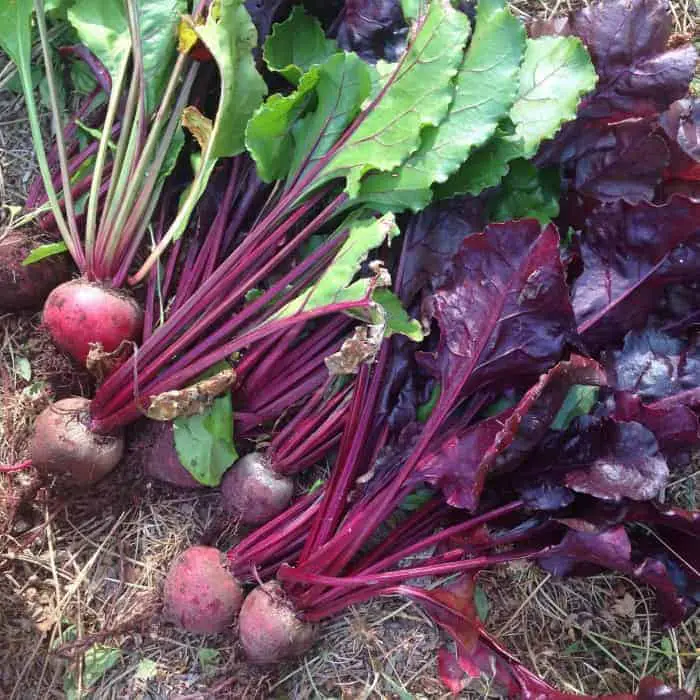
Do you eat in season? Do you buy or support a local farmer or CSA?
Tell me about your seasonal eating ventures and how far you’ve taken it!
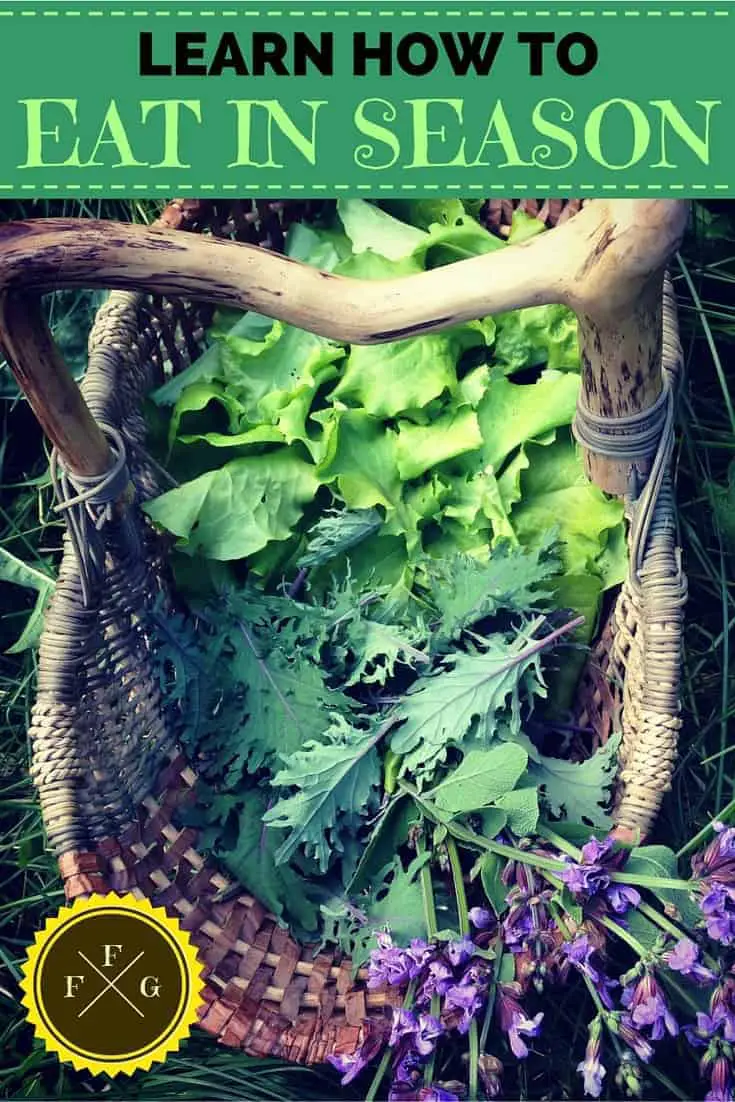

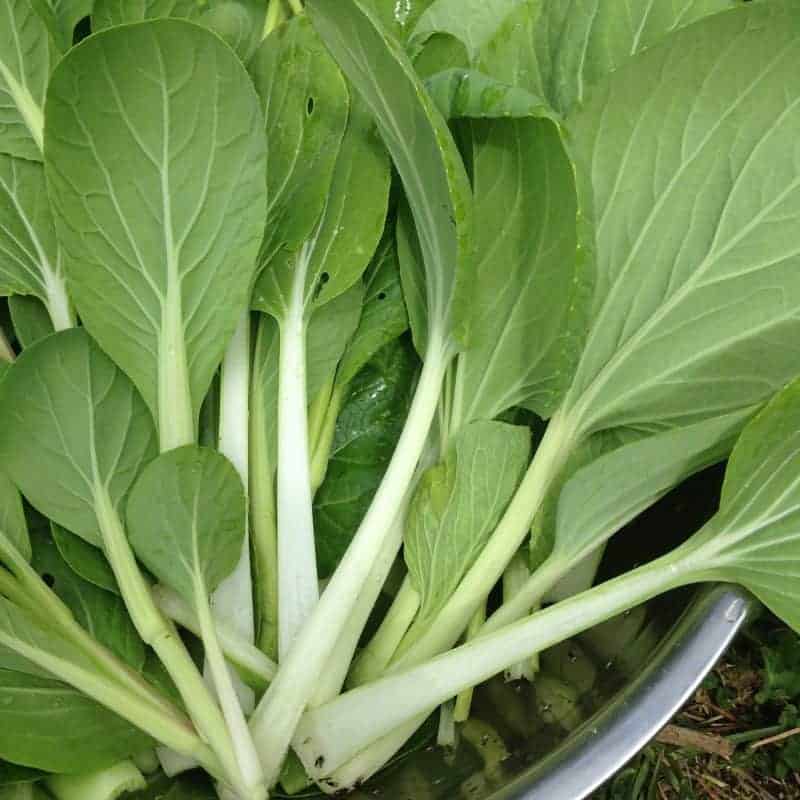
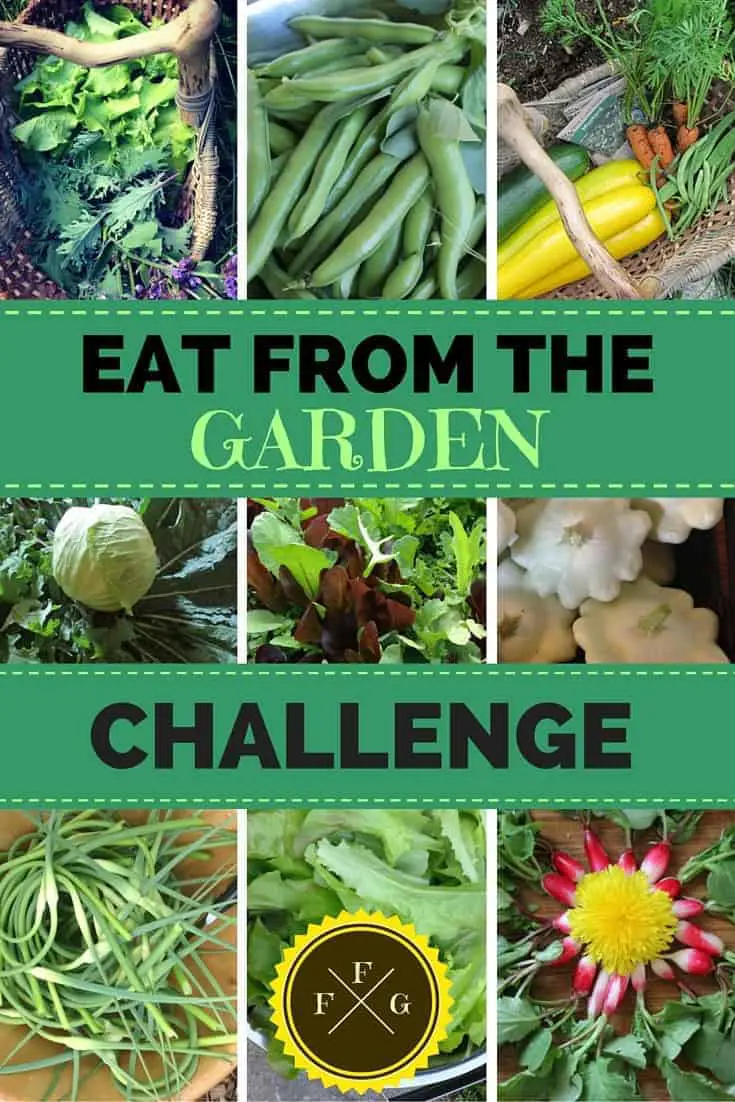
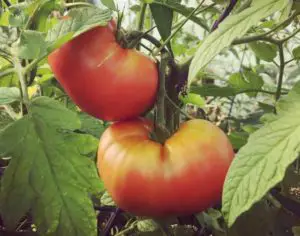
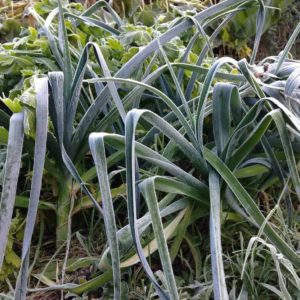





Love this challenge! My husband and I do pretty well eating seasonally already – we’re in zone 5 Canada as well, and the winter is long! I hope to freeze more in-season this year, especially fruit and greens, to keep us going through the squash filled winter.
But where I really get stuck is with my 5 year old… we end up buying a few things like bell peppers year round because of her raw veg preferences, and as we come back into spring I’ve had to remind her about veg she loved last year but hasn’t seen since then.
It sounds like you’re doing a great job eating seasonally! & as long as your 5 year old is eating veggies that’s wonderful 🙂
I still have squash in our freezer! Have you tried any winter gardening? Niki Jabbours book is fantastic & she’s in zone 5 (Nova Scotia) with heavy wet snows and she grows year round. It’s what we’re hoping to do!
I have her book and love it! I’ve just started with seasonal extenders this year, but hope to get to winter gardening within the next two years. Looking forward to reading about how it goes for you. 🙂
I live in Missouri on a small farm — 15 acres. I have two vegie gardens and numerous flowers to attract bees and butterflies. My husband and I eat as much in season as possible. I can say that it has helped his arthritis (RA). We eat from it from about May through October and supplement it from the local farmer’s market and the Amish store. They have 900 acres and sell up till Oct. Just in our garden we have tomatoes, peppers, potatoes, green beans, salad greens, onions, radish, swiss chard, snow peas and asparagus. I belong to a community swapping group. This year I also have pumpkins since I know others will not be growing these. Most of us can or freeze. I have just started with black berries and apples. This is the first year I have harvested blackberries. But we also have them growing wild by our wet-weather pond. For anyone attempting to eat year round from your garden — this is very difficult. Food preservation is a daily task. We also have two hay fields and the guy who cuts the hay raises grass-fed beef so we get a half cow. The Amish give away raw milk and since we have yet to get a milk cow, I can make my own butter from the raw stuff. Also have to pasturize my own. We have chickens and thus fresh eggs which I also use in barters. A month eating from you own garden is more than possible especially if you can, pickle, freeze, and make your own vinegar. Always make your own vinegar. This is what I do and it can be ultra time consuming, and risky. This year we had good weather — almost too much rain. Too much of anything can ruin any crop. But, I would not trade my life for that of going to the grocery store since the nearest big grocer is about 20 minutes away. Many good friends are made over a garden. Just swapped tomatoes for cucumbers the other day. A friend brought over some zucchini and picked up a doz. eggs. We get about a doz. eggs every other day. So, if you get chickens, eggs make great payment for lots of things.